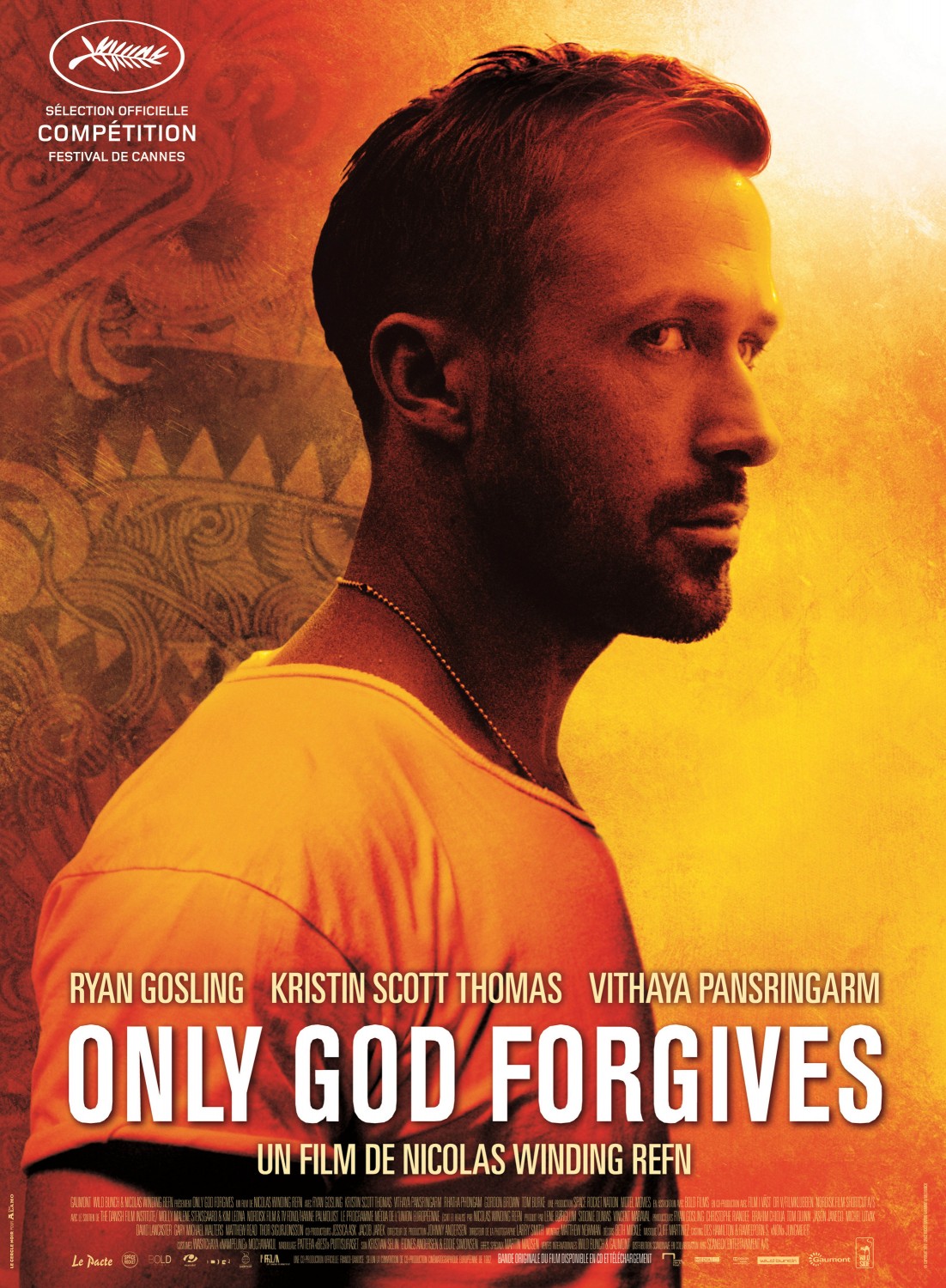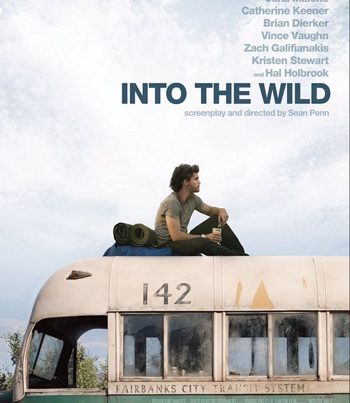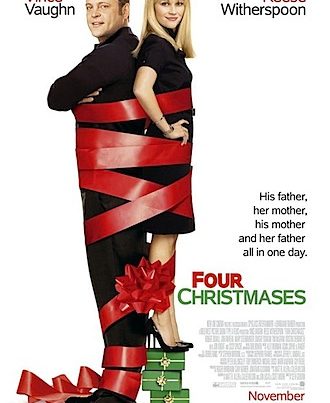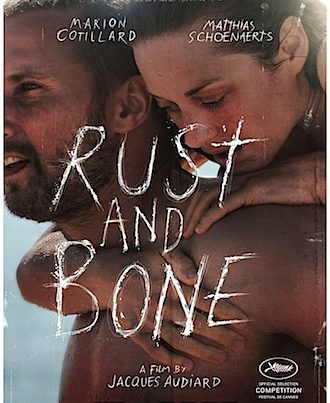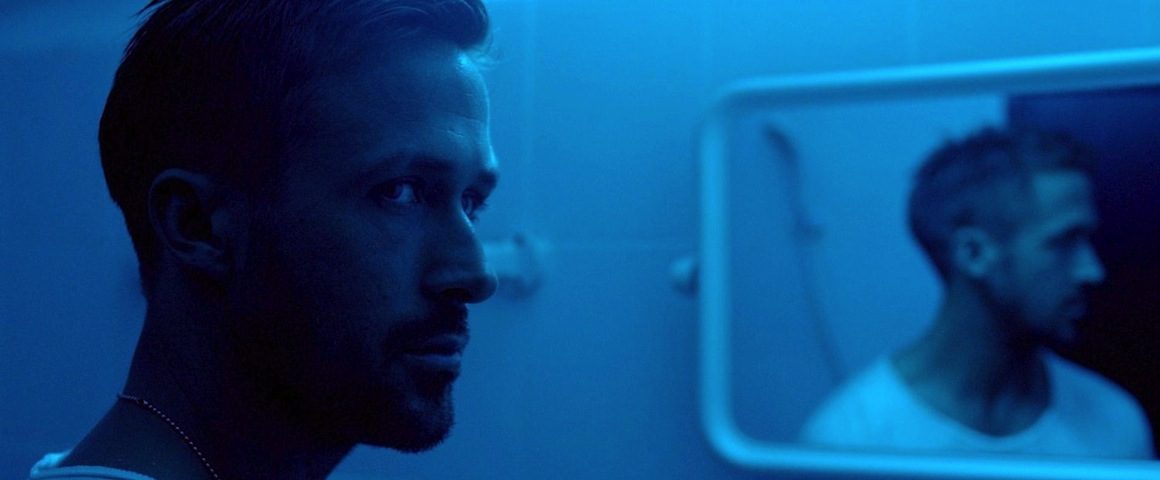
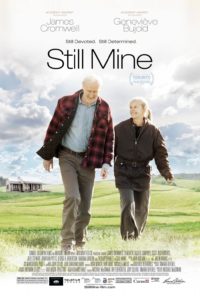 Still hovering around some local cinemas – and the longest-delayed of all my outstanding reviews – Still Mine is a surprisingly effective Canadian drama about an elderly man (James Cromwell, 73 but playing a fit 89) determined to build a new house for his wife (Geneviéve Bujold) before her memory deserts her completely. Cromwell gives his character a softness which belies the usual ornery old dude clichés, even if his stubborn refusal to submit to the building code is the device on which the story hinges. Contains lots of shots of Cromwell’s heroic profile staring off into the New Brunswick distance.
Still hovering around some local cinemas – and the longest-delayed of all my outstanding reviews – Still Mine is a surprisingly effective Canadian drama about an elderly man (James Cromwell, 73 but playing a fit 89) determined to build a new house for his wife (Geneviéve Bujold) before her memory deserts her completely. Cromwell gives his character a softness which belies the usual ornery old dude clichés, even if his stubborn refusal to submit to the building code is the device on which the story hinges. Contains lots of shots of Cromwell’s heroic profile staring off into the New Brunswick distance.
 Older people are, paradoxically, the only growing segment of the film audience in New Zealand so there’s often high quality fare around the tempt them. One of the best is the documentary Ping Pong, about competitors (genuine competitors at that) in the World Over 80s Table Tennis Championship in Inner Mongolia. Like any good documentary it assembles a great cast of characters and like all good sports movies it makes full use of the built-in drama of a knock-out tournament. Not just about the restorative power of exercise, it’s also about friendship and adventure. Inspiring, so help me.
Older people are, paradoxically, the only growing segment of the film audience in New Zealand so there’s often high quality fare around the tempt them. One of the best is the documentary Ping Pong, about competitors (genuine competitors at that) in the World Over 80s Table Tennis Championship in Inner Mongolia. Like any good documentary it assembles a great cast of characters and like all good sports movies it makes full use of the built-in drama of a knock-out tournament. Not just about the restorative power of exercise, it’s also about friendship and adventure. Inspiring, so help me.
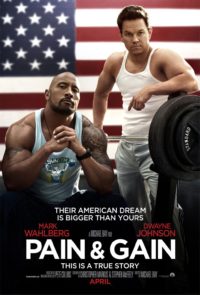 Exercise is not always good for you, though, as the protagonists of Michael Bay’s under-rated satire Pain & Gain might confirm. Based on the true story of a gang of 1980s Miami bodybuilders who shortcut their way to the American Dream by kidnapping a local businessman and forcing him to sign over all his assets. Mark Wahlberg is the brains of the outfit – if that’s not an entirely incorrect characterisation of the situation – and Dwayne Johnson and Anthony Mackie get dragged along with it. Johnson in particular has a ball playing a born-again, sober, ex-con confronting his demons in hilarious fashion.
Exercise is not always good for you, though, as the protagonists of Michael Bay’s under-rated satire Pain & Gain might confirm. Based on the true story of a gang of 1980s Miami bodybuilders who shortcut their way to the American Dream by kidnapping a local businessman and forcing him to sign over all his assets. Mark Wahlberg is the brains of the outfit – if that’s not an entirely incorrect characterisation of the situation – and Dwayne Johnson and Anthony Mackie get dragged along with it. Johnson in particular has a ball playing a born-again, sober, ex-con confronting his demons in hilarious fashion.
It’s not without some terrible missteps but the script by Christopher Markus and Stephen McFeely is so good I’m tempted to pin the blame for everything that doesn’t work squarely on Mr. Bay. Deliciously misanthropic in ways that normally turn me right off, Pain & Gain is my guiltiest pleasure of the year so far.
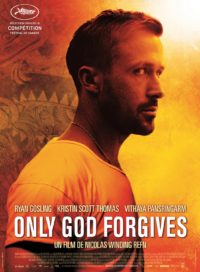 Compared with P&G, Nicholas Winding Refn’s Only God Forgives is a work of total zen (although fired by an equal repugnance for human beings no matter what path they are walking). In present-day Thailand, Ryan Gosling’s taciturn drug smuggler is forced by his Lady MacBeth-like mother (Kristin Scott Thomas) to avenge the death of his older brother, himself a nasty piece of work. In turn, his reluctant carnage leaves a trail followed by a local cop (Vitaya Pansringarm) who has his own way of cleaning the streets.
Compared with P&G, Nicholas Winding Refn’s Only God Forgives is a work of total zen (although fired by an equal repugnance for human beings no matter what path they are walking). In present-day Thailand, Ryan Gosling’s taciturn drug smuggler is forced by his Lady MacBeth-like mother (Kristin Scott Thomas) to avenge the death of his older brother, himself a nasty piece of work. In turn, his reluctant carnage leaves a trail followed by a local cop (Vitaya Pansringarm) who has his own way of cleaning the streets.
A severe distillation of both revenge tragedy and Gosling’s recent inarticulate – vaguely autistic – anti-heroes, Only God Forgives may be the most beautiful representation of human horror I’ve ever seen. It makes no attempt to provide characters with more than the most base motives for primal actions – psychologically void, not just simplistic. It has stuck with me, this one, and – despite my usual squeamishness in these matters – I can see a need for a second viewing.
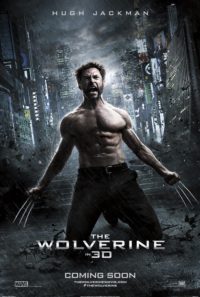 Barely justifying a first viewing, Hugh Jackman’s sixth (so far) outing as the moody mutant Logan, The Wolverine can’t even bring itself to find an original title – you might recall the last one was called X‑Men Origins: Wolverine. Like Gosling in Only God Forgives, he is a white dude getting up to mischief in some kind of Asian fantasy land, in this case a Japan constructed from references in that children’s version of Wikipedia.
Barely justifying a first viewing, Hugh Jackman’s sixth (so far) outing as the moody mutant Logan, The Wolverine can’t even bring itself to find an original title – you might recall the last one was called X‑Men Origins: Wolverine. Like Gosling in Only God Forgives, he is a white dude getting up to mischief in some kind of Asian fantasy land, in this case a Japan constructed from references in that children’s version of Wikipedia.
Somehow, I managed to fall asleep during the loudest section of the film – an extended digitally-constructed battle between Logan and some ninjas on the top of the famous bullet train – and the rest of the very stupid film could barely maintain what little attention I had left. It does make a nice change though for a blockbuster movie to not be about saving us from the end of the world, though, just another existential crisis for the biggest wuss in the Marvel or DC universes.
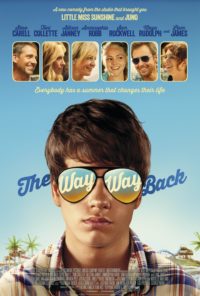 If the world wasn’t already full of coming-of-age movies in which a sensitive, lonely, misunderstood and unappreciated adolescent male learns some important life lessons – and kisses a girl – with the help of an unlikely best friend, I might feel a little more fondly of The Way, Way Back. The presence of both Toni Collette and Steve Carell also reminded me too much of the irredeemably smarmy Little Miss Sunshine (which is not its fault, to be sure) so, by the time Allison Janney and Sam Rockwell arrived – both seemingly unrestrained by directorial influence – I was already checking out.
If the world wasn’t already full of coming-of-age movies in which a sensitive, lonely, misunderstood and unappreciated adolescent male learns some important life lessons – and kisses a girl – with the help of an unlikely best friend, I might feel a little more fondly of The Way, Way Back. The presence of both Toni Collette and Steve Carell also reminded me too much of the irredeemably smarmy Little Miss Sunshine (which is not its fault, to be sure) so, by the time Allison Janney and Sam Rockwell arrived – both seemingly unrestrained by directorial influence – I was already checking out.
It’s all endearing enough, I suppose, and it’s nice to see Carell, at least, playing against type, but I’d much rather see the next one of these films told from the female point of view rather than reducing them to glib types, defined only by their relationship with the oh-so-important protagonist.
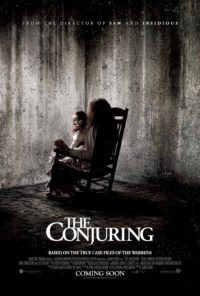 The July earthquake took place during my Sunday afternoon screening of the horror flick The Conjuring at Readings – the only time it is acceptable to text in a movie theatre by the way – so I can’t be sure if the accelerated heart rate and shallower breathing was due to the tremors or a better-than-usual fright-delivery mechanism directed by James Wan (Saw). Patrick Wilson and Vera Farmiga are paranormal investigators called to a haunted house that Ron Livingston and Lili Taylor (and their five daughters) have just moved in to.
The July earthquake took place during my Sunday afternoon screening of the horror flick The Conjuring at Readings – the only time it is acceptable to text in a movie theatre by the way – so I can’t be sure if the accelerated heart rate and shallower breathing was due to the tremors or a better-than-usual fright-delivery mechanism directed by James Wan (Saw). Patrick Wilson and Vera Farmiga are paranormal investigators called to a haunted house that Ron Livingston and Lili Taylor (and their five daughters) have just moved in to.
These things are all about execution and Wan has that in spades – in ways that the tedious Paranormal Activity franchise can only dream of – plus he casts really well. Proper actors, everywhere. I’m extremely happy that he is making Fast & Furious 7.
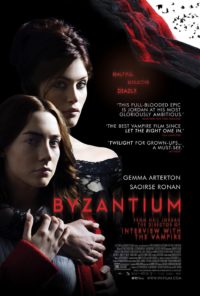 Quickly wrapping up this column – and edging us closer to being fully caught up – two more contrasting genre pieces. Neil Jordan is one of the most experienced directors around – I remember watching and admiring his debut, Angel, back when I was at high school in 1982. His vampire movie, Byzantium, is a low-budget character-driven piece centred on the relationship between two sisters (Gemma Arterton and Saoirse Ronan) on the run in a past-its-best British seaside town. It turns out that not only are they not sisters but that they have been here before, many years ago. At the risk of being blackballed from the film reviewer’s union I might suggest that these two parts give the leads plenty to sink their teeth into – opportunities that Arterton in particular takes full advantage of.
Quickly wrapping up this column – and edging us closer to being fully caught up – two more contrasting genre pieces. Neil Jordan is one of the most experienced directors around – I remember watching and admiring his debut, Angel, back when I was at high school in 1982. His vampire movie, Byzantium, is a low-budget character-driven piece centred on the relationship between two sisters (Gemma Arterton and Saoirse Ronan) on the run in a past-its-best British seaside town. It turns out that not only are they not sisters but that they have been here before, many years ago. At the risk of being blackballed from the film reviewer’s union I might suggest that these two parts give the leads plenty to sink their teeth into – opportunities that Arterton in particular takes full advantage of.
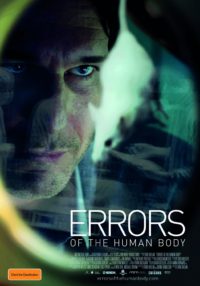 Eron Sheean is at the other end of his career and his first feature, Errors of the Human Body, suffers from that lack of experience. A Cronenbergian body horror about random genetic mutations, retroviruses, competitive scientific research and mice, Errors doesn’t succeed in getting its point across. This – reasonably bright – reviewer found the science too obtuse and the conclusion too unsatisfying to make up for the lack of propulsion in the first two thirds.
Eron Sheean is at the other end of his career and his first feature, Errors of the Human Body, suffers from that lack of experience. A Cronenbergian body horror about random genetic mutations, retroviruses, competitive scientific research and mice, Errors doesn’t succeed in getting its point across. This – reasonably bright – reviewer found the science too obtuse and the conclusion too unsatisfying to make up for the lack of propulsion in the first two thirds.

